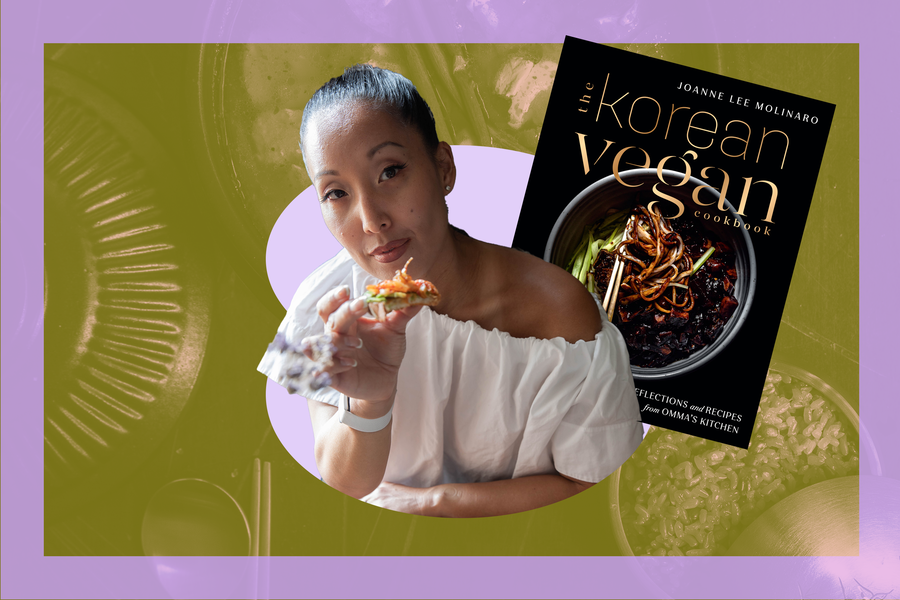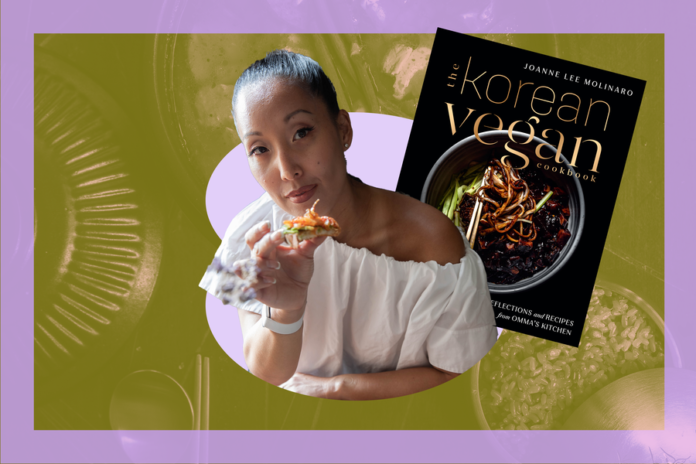
When Joanne Lee Molinaro speaks, her presence is commanding. It’s not in a way that is abrasive—her voice is soothing, her words thoughtful, her stories uniquely her own, yet undeniably relatable. That’s partially what has made her a successful attorney in Chicago, as well as helped her build a TikTok following of more than 2.5 million avid viewers under the moniker The Korean Vegan.
Although Molinaro’s videos show her hands at work, preparing rolls of kimbap, glistening jjajangmyun, or vegan fried chicken, her voice weaves in stories about family, difficult challenges she’s overcome, and hope.
“I wanted people to hear my voice. I want to be imparting something, if not directions on the recipe,” Molinaro explains. “There’s a popular phrase that people are using: ‘Love my food, love my people.’ And that was really the organic idea behind it, which is, my food is wonderful—but I also want you to know the people behind my food. That’s really the idea of The Korean Vegan.”
Although Molinaro has been on TikTok just over a year, The Korean Vegan began in 2016 as a creative outlet separate from her high-powered career in law. “I was told by a couple of my colleagues, ‘Hey, Joanne, you need to have something outside of work. You need to have a hobby,’” she explains. “When I went vegan, I was so nervous that I wouldn’t be able to eat Korean food anymore, and I couldn’t find any other real blogs out there that did what I needed. So I was like, ‘This is an opportunity for me to understand Korean cuisine better, to ensure that I actually get to continue eating the way that I want.’”
It feels like so much of Korean food is entrenched in animal products: spreads of brisket and short rib are found at Korean barbecue restaurants, pork shoulder is often the centerpiece of ssam, and even kimchi is made with fermented anchovies.
“I missed that emotional connection that I had to food, which was Korean barbecues, my uncle on the grill, my dad preparing the marinade, and stuff like that—like I couldn’t be part of that anymore,” Molinaro admits. “But there’s this whole world of cuisine out there in Korea that I was previously not aware of. I don’t think Buddhists think, ‘Oh, this is vegan food,’ but [temple food] is certainly a rich and plant-based tradition in Korea.”
With that in mind, and upon reflection, Molinaro has realized that although a lot of the food she grew up with included meat, her family’s dinner spreads were—for the most part—composed of vegetables. “I just make sure my whole table looks exactly like it did when I was growing up,” she says “Yes, there would be meat every once in a while, but 80% of the table is vegetables.”






